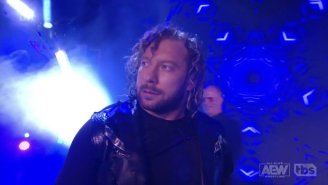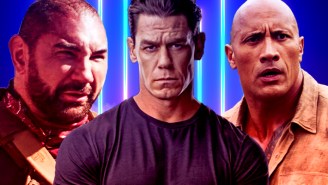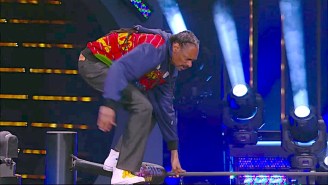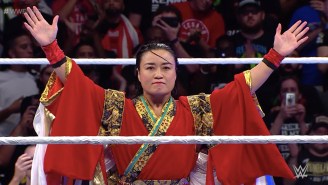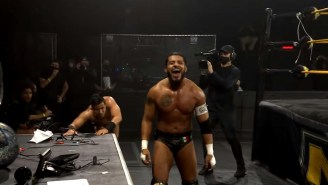According to the U.S. census bureau, the dominance of non-Hispanic white people, who today account for two-thirds of Americans, will be whittled away, falling steadily to less than half in 2042 and 46% by 2050. In the opposite trajectory, those who describe themselves as Hispanic, black, Asian and Native American will increase in proportion from about a third now to 54% by 2050…The projections suggest that the Hispanic population will increase from 15% of the population today to almost a third by 2050, almost tripling in size from 47 million to 133 million.” — The Guardian
In the 1940s, psychologists Kenneth and Mamie Clark used dolls to study children’s attitudes and self-perception regarding race. In one experiment, black children were shown virtually identical dolls, the only difference being that one was brown with black hair and the other was white with blond hair. The children were asked to decide which doll is nice/mean, pretty/ugly, etc. Results showed that, by a wide margin, black children considered the white doll to be superior to the brown doll.
When I was a little girl, I loved to play with Barbie. I admired her blond hair, blue eyes, and cool clothes. My brother’s girlfriend noticed this and one day surprised me with Teresa, Barbie’s Latina friend. Though she resembled Barbie, her black hair and brown eyes made her look more like me. I thanked my brother’s girlfriend for Teresa, but I never played with her. Teresa stayed buried in a drawer until my father donated her and other toys to charity. Because I thought Teresa, the doll that looked like me, was ugly.
The doll test is the story of so many children. It’s my story. It’s why by the end of every episode of Lucha Underground I am in tears or close to it.
I’ve loved wrestling for a long time, but it never felt like something that has me in mind when it’s performed. I’ve spent most of my wrestling fandom watching WWE, and in the WWE, women are objects, queer people are abhorrent, and non-white people often play to racial or ethnic stereotypes. Over the years I’ve sought alternatives, and AAA came closest to being a promotion I could connect with on a human level. Then Lucha Underground happened, and oh my god, it makes me sing.
In a blog post for Bitch magazine, I touched on Lucha Underground‘s contribution to televised, U.S.-based professional wrestling. In his words, Robert Rodriguez wants “the face of the [El Rey] network to more resemble the face of the country.” A lot of well-meaning people make similar promises, and it’s a challenge to carry them out in a society concerned with white superiority. So it’s wonderful that Rodriguez took the initiative and began his own network to address the lack of diversity in popular media, and greater still that he supports Lucha Underground, a show that moves beyond wrestling to celebrate the Latino culture found nowhere but in the U.S.
Because I, a mestiza,
continually walk out of one culture
and into another,
because I am in all cultures at the same time.
—Gloria Anzaldua, Borderlands/La Frontera: The New Mestiza
For the first few years of my life, I communicated almost exclusively in Spanish. Then I moved to a new school and fell into the trap of wanting to be liked. All the cool kids were bilingual (we lived in Miami, after all) but spoke mostly English, so little by little, I too made the switch. I consumed English-language media, happy to take part in conversations that happened on playgrounds and in cafeterias. I rejected any trace of my cultural identity because there was nothing I wanted more than to belong. I didn’t notice what I was doing, what was happening to me, and I didn’t have the word for it until I was in my 20s: assimilation.
The thing about assimilation is that despite how hard you try to fit in, you never truly belong to the culture you’ve adopted because everywhere there are reminders that your face isn’t the one that matters, your customs are strange, and your language is spoken only by people who weren’t born here. You wind up in a tug-of-war between the identity you’re leaving behind and the one you’re seeking, and all that’s left is this uncomfortable hybrid that feels like it fits only you, and maybe that should be enough but it isn’t. We’re people. We’re social animals. We want to belong.
Dario Cueto’s temple is said to reside in East L.A., a Mexican working-class area, and in his temple, every face is different. When the camera cuts to the audience, it cuts to Latino faces. In Pentagon Jr.’s origin video, two of his nameless opponents are black. When Sexy Star speaks, it’s in subtitled Spanish. All of this is presented without strobe lights that brag about the show’s diversity. It exists like it’s always been there because it has been. Because in the United States, nearly everyone’s bloodline can be traced outside its borders. Because people from Central or South America will continue to move to the U.S. and raise children here, and they too will be asked to choose between sparring cultures. Rather than drop one identity or conform to another, Lucha Underground embodies the hybrid culture created through assimilation and makes it important and beautiful and American. Every character is different, and their differences are celebrated. In Lucha Underground‘s universe, the United States is not a melting pot—it’s a mosaic.
“Motherf–kers will read a book that’s 1/3 elvish, but put two sentences in Spanish and white people think we’re taking over.”—Junot Diaz, Pulitzer-Prize winning author of The Brief and Wondrous Life of Oscar Wao
In the WWE, Spanish is spoken on three occasions: 1) when the camera cuts to the Spanish announce table during PPVs 2) when Latino wrestlers slip in key words during promos they then repeat in English 3) when non-Latino wrestlers mock a Latino wrestler using the few Spanish words they know. The third one irritates me so much. It’s bad enough when everyday xenophobes and racists tell immigrants to speak English or git out. Wrestling is my happy place, warts and all, but unless the people mocking Latino wrestlers via Spanish are heels (and often they’re not), it’s uncomfortable to watch things like CM Punk condescendingly call Alberto Del Rio amigo. It’s one in a series of microaggressions used to imply that Latino wrestlers, for all their charisma, looks, and talent, will always be an other, a bad kind of different.
The reality is that Spanglish—a mix of English and Spanish—is common in Latino-American households. In Dario Cueto’s temple, Spanglish is the mother tongue. When Cueto or Konnan or whoever weave between the two languages, it’s never questioned or mocked by others—it just is. And in episode three, Lucha Underground takes it a step further: Johnny Mundo, seeking the money owed to him at the end of the series premiere, stalks toward Cueto’s office. Cortez Castro and Cisco stand guard outside, and he takes them down. Johnny walks through the door, and as Cueto tries to placate him, Johnny says, “Cálmate. Tranquilo. Relax.”
It’s two words, insignificant within the context of Johnny’s message to Cueto. To me, it was everything. Outside the temple, the dominant culture is white and English-based. It’s Johnny Mundo’s world, where immigrants are asked, sometimes forced, to adapt or perish. In the temple, Johnny is the other. Johnny is the one who must adapt to the culture, the customs, and the language. He recognizes where he is and says two Spanish words without smugness or disgust. It’s the simplest move forward. It’s everything I’ve wanted to see in wrestling.
When I watch Lucha Underground, I see the inclusion that Robert Rodriguez promised. I see the mosaic our country should be. I see me. I see a place where I finally belong.
Echa pa’lante, Lucha Underground. Don’t stop moving forward.
Ariana Vives lives for hoodies, cupcakes, and pro wrestling. She also loves to write but is painfully slow about it. You can find her stuff at Bitch Media, and if you’d like you can add her on Twitter.

